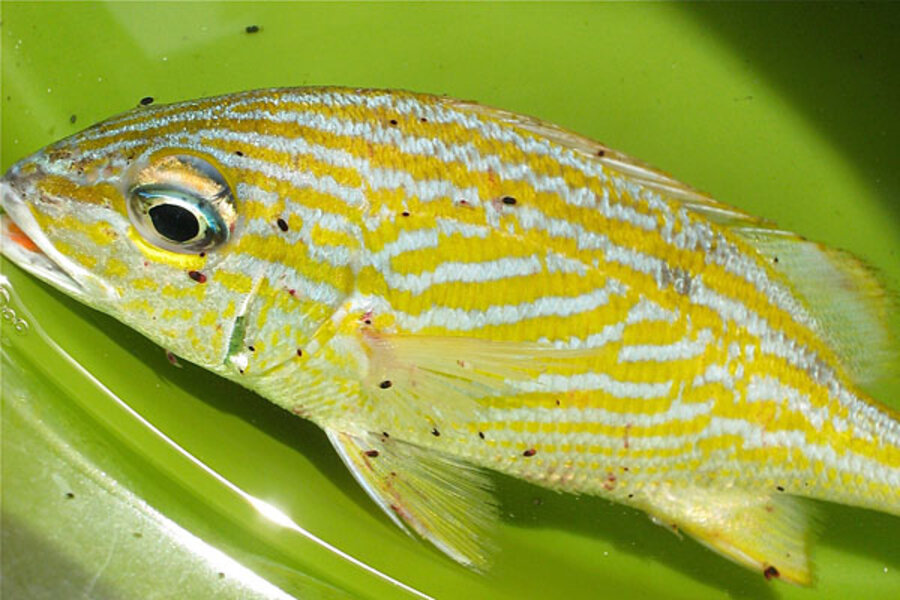Carribean parasite named after Bob Marley. Could it be loved?
Loading...
| Washington
Reggae immortal Bob Marley has joined Barack Obama and Elvis Presley in the elite club of those who have biological species named in their honor.
In Marley's case, it's a small parasitic crustacean blood feeder that infests fish in Caribbean coral reefs, now known as Gnathia marleyi.
"I named this species, which is truly a natural wonder, after Marley because of my respect and admiration for Marley's music," Paul Sikkel, a marine biologist at Arkansas State University, said in a statement on Tuesday.
"Plus, this species is as uniquely Caribbean as Marley."
Young Gnathia marleyi hide among coral rubble, sea sponges or algae, launching surprise attacks on fish, which they then infest, eating enough to fuel their growth to adulthood.
Adults don't eat at all, Sikkel said, but manage to survive for two to three weeks on their last feedings as juveniles.
Caribbean coral reefs are vulnerable to diseases, and Sikkel said his team is studying the relationship between the health of coral reef communities and gnathiid populations.
Gnathiids, like the species named for Marley, are the most common external parasites found on coral reefs. They are ecologically similar to land-based, blood-sucking ticks or disease-carrying mosquitoes, the biologist said.
Bob Marley, who died in 1981, was an iconic exponent of the Jamaican-born music known as reggae. One of his standards is "No Woman, No Cry."
President Obama has a lichen named for him and Elvis has a wasp.
Sikkel and his research team described all the life stages of Gnathia marleyi in the current edition of the journal Zootaxia. The research was funded in part by the National Science Foundation.
(Editing by Xavier Briand)





